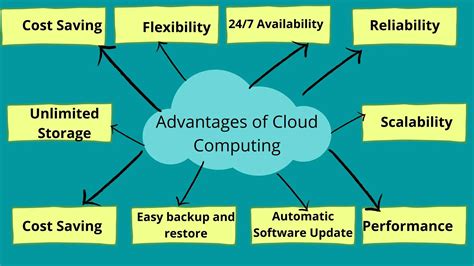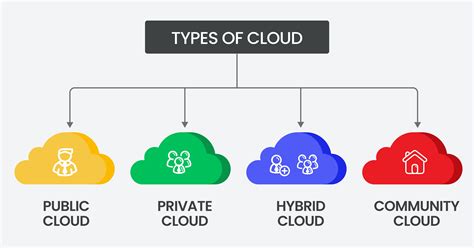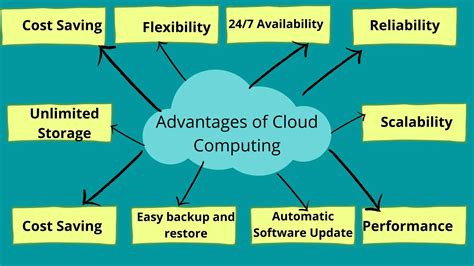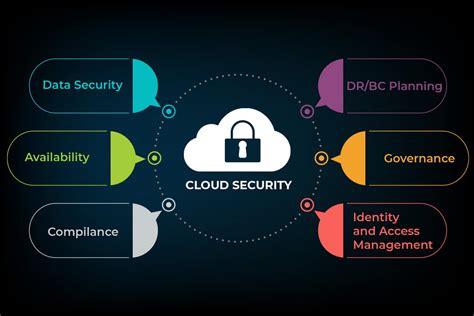Breaking News


Popular News


Discover the types and benefits of cloud computing services, choose the right provider, and implement cloud computing securely in your business with this comprehensive guide.In today’s digital age, businesses are increasingly turning to cloud computing services to streamline their operations and improve efficiency. However, with the myriad of options available, it can be daunting to understand and choose the right cloud computing solution for your specific business needs. In this comprehensive guide to cloud computing services, we will delve into the fundamental concepts of cloud computing, explore the different types of cloud services available, and discuss the numerous benefits that cloud computing can offer to businesses of all sizes. We will also provide valuable insights into choosing the right cloud service provider, implementing cloud computing in your business, and the essential security considerations that come with migrating to the cloud. Whether you are a small start-up or a large enterprise, this guide will equip you with the knowledge to make informed decisions and leverage the power of cloud computing for your business.
Contents

Cloud computing is a technology that allows individuals and businesses to access and use various services and applications over the internet. This means that instead of running applications and programs on physical hardware or servers, users can access them through the internet. The data and application software are stored on servers, which are managed by cloud service providers. This allows for a more flexible and scalable way of using technology, as users can access the services they need without the need for physical infrastructure.
There are different types of cloud computing services, including infrastructure as a service (IaaS), platform as a service (PaaS), and software as a service (SaaS). Each of these services offers different levels of control and management over the underlying infrastructure and software, allowing users to choose the level of service that best fits their needs. Understanding these different types of cloud computing services can help businesses make informed decisions about the type of services they need.
One of the main benefits of cloud computing is the ability to access resources and services on demand, without the need to invest in and manage physical infrastructure. This can help businesses save costs and improve efficiency, as they can quickly and easily scale their computing resources to meet changing needs. Additionally, cloud computing allows for greater flexibility and accessibility, as users can access their data and applications from anywhere with an internet connection.
When choosing the right cloud service provider, businesses need to consider factors such as reliability, security, and cost. It’s important to choose a provider that can offer the level of service and support that meets the business’s needs, while also maintaining high levels of security and reliability. Implementing cloud computing in a business requires careful planning and consideration. Businesses need to assess their current infrastructure, data security needs, and business goals to determine the best approach for implementing cloud computing services.

Infrastructure as a Service (IaaS): This type of cloud computing service offers virtualized computing resources over the internet. IaaS provides virtual server space, network connections, and bandwidth on a pay-per-use basis. It allows businesses to scale their infrastructure as needed without having to invest in physical hardware.
Platform as a Service (PaaS): PaaS provides a platform allowing customers to develop, run, and manage applications without the complexity of building and maintaining the infrastructure. It offers a complete environment for developers to build, test, and deploy applications, making the development process more efficient and cost-effective.
Software as a Service (SaaS): SaaS is a software distribution model in which applications are hosted by a third-party provider and made available to customers over the internet. This service eliminates the need for organizations to install and run applications on their own computers, simplifying maintenance and support. Users can access the software through a web browser, allowing for easy and immediate access to the latest features and updates.
| Service Type | Description |
|---|---|
| IaaS | Virtualized computing resources over the internet, including virtual server space, network connections, and bandwidth on a pay-per-use basis. |
| PaaS | A platform for developers to build, test, and deploy applications without the complexity of building and maintaining the infrastructure. |
| SaaS | Software hosted by a third-party provider and made available to customers over the internet, eliminating the need for local installation and maintenance. |

One of the key benefits of cloud computing is the cost savings it offers. By using cloud services, businesses can reduce their need for expensive hardware and infrastructure, as well as the costs associated with maintaining and upgrading these systems. This can result in significant cost savings for businesses of all sizes.
Another advantage of cloud computing is the scalability it provides. With cloud services, businesses can easily scale their computing resources up or down as needed, without having to invest in new hardware or equipment. This flexibility can be particularly valuable for businesses with fluctuating workloads or seasonal peaks.
Cloud computing also offers enhanced collaboration and workforce mobility. With cloud-based tools and applications, employees can access the information and resources they need from anywhere with an internet connection. This can lead to increased productivity and efficiency, as well as greater flexibility for employees to work remotely.
Finally, security is another benefit of cloud computing. Many cloud service providers offer robust security measures to protect data and systems, often more advanced than what many businesses can implement on their own. This can provide peace of mind for businesses concerned about data breaches and cyber attacks.

When it comes to choosing the right cloud service provider for your business, there are a number of factors to consider. It’s important to do your research and carefully evaluate your options to ensure that you select a provider that meets your specific needs and budget. One of the first things to consider is the type of cloud computing services that each provider offers. Whether you need Infrastructure as a Service (IaaS), Platform as a Service (PaaS), or Software as a Service (SaaS), make sure that the provider you choose has the right offerings for your business.
Another important factor to consider when choosing a cloud service provider is the level of reliability and uptime that they can guarantee. It’s essential that your business-critical applications and data are available whenever you need them, so look for a provider that has a proven track record of uptime and reliability. Additionally, make sure to inquire about the provider’s data backup and disaster recovery capabilities to ensure that your data will be protected in the event of a hardware failure or other unexpected event.
Furthermore, it’s crucial to consider the security measures that each cloud service provider has in place. You’ll want to ensure that your sensitive data and applications are protected from unauthorized access, so look for a provider that offers strong encryption, access controls, and other security features. It’s also important to consider the provider’s compliance certifications and adherence to industry best practices to ensure that they meet the necessary security standards for your business.
Lastly, it’s important to consider the cost when choosing a cloud service provider. While it’s important to select a provider that offers all of the features and capabilities that your business needs, you’ll also need to ensure that their services fit within your budget. Look for a provider that offers transparent pricing and flexible billing options to ensure that you’re able to scale your services as your business grows without breaking the bank.

Implementing cloud computing in your business can be a game-changer, allowing you to access and store data and applications over the internet, rather than on your own computer’s hard drive. One of the first steps in implementing cloud computing in your business is to assess your current IT infrastructure and determine which areas could benefit from cloud-based solutions.
Next, you will need to select the right cloud service provider for your business. There are several types of cloud services to choose from, including Software as a Service (SaaS), Platform as a Service (PaaS), and Infrastructure as a Service (IaaS). Each of these services offers different benefits and features, so it’s important to research and compare before making a decision.
Once you have chosen a cloud service provider, the next step is to develop a plan for migrating your data and applications to the cloud. This may involve reconfiguring your existing systems and processes, as well as training your staff on how to use the new cloud-based tools and applications.
Finally, it’s crucial to address any security considerations that come with implementing cloud computing in your business. This may include implementing strict access controls, data encryption, and regular security audits to ensure that your data remains safe and secure in the cloud environment.

When considering security in the context of cloud computing, it is essential to evaluate the various security threats that may arise in the cloud environment. One of the main concerns is the risk of data breaches and data loss due to unauthorized access and insider threats. Additionally, there is the issue of compliance and regulatory requirements when it comes to protecting sensitive data in the cloud.
Another important security consideration is the shared responsibility model between the cloud provider and the cloud user. It is crucial to understand the division of security responsibilities and ensure that all security measures are in place, both on the provider side and the user side.
Furthermore, it is essential to consider the physical security of the data centers where cloud services are hosted. Security measures such as access control, surveillance systems, and redundant power supplies are critical in ensuring the protection of data and infrastructure.
Lastly, encryption and key management are crucial aspects of security in cloud computing. Encryption helps to protect data both at rest and in transit, while effective key management ensures that encryption keys are safely stored and managed to prevent unauthorized access to sensitive information.

What is cloud computing?
Cloud computing refers to the delivery of computing services including servers, storage, databases, networking, software, analytics, and intelligence over the internet (the cloud) to offer faster innovation, flexible resources, and economies of scale.
What are the advantages of using cloud computing services?
Some advantages of using cloud computing services include cost savings, scalability, flexibility, security, and disaster recovery.
What are the different types of cloud computing services?
The three main types of cloud computing services are Infrastructure as a Service (IaaS), Platform as a Service (PaaS), and Software as a Service (SaaS).
What are some popular cloud computing service providers?
Some popular cloud computing service providers include Amazon Web Services (AWS), Microsoft Azure, Google Cloud Platform (GCP), IBM Cloud, and Oracle Cloud.
How can businesses benefit from using cloud computing services?
Businesses can benefit from using cloud computing services by gaining access to advanced technologies, reducing costs, improving collaboration, increasing flexibility, and enhancing scalability.
What are the potential challenges of using cloud computing services?
Some potential challenges of using cloud computing services include security concerns, data privacy issues, compliance and legal issues, and potential downtime.
What are some best practices for utilizing cloud computing services?
Some best practices for utilizing cloud computing services include implementing robust security measures, monitoring cloud costs, optimizing performance, leveraging automation, and creating a disaster recovery plan.